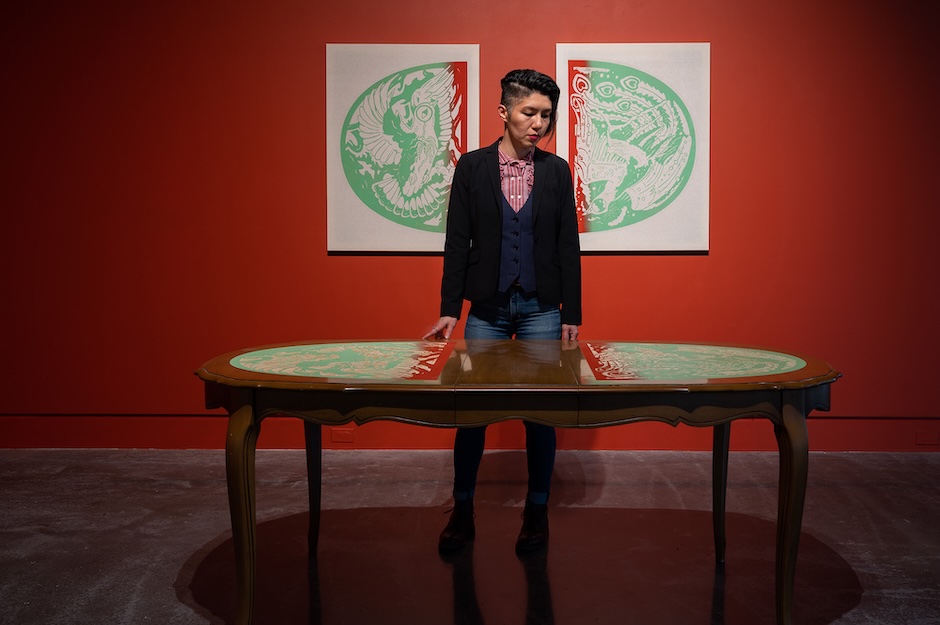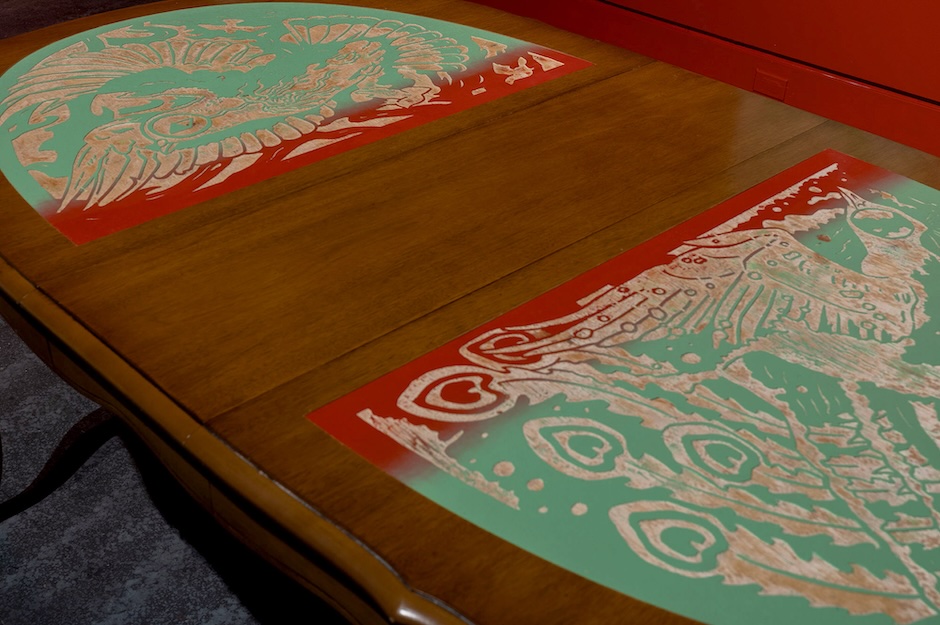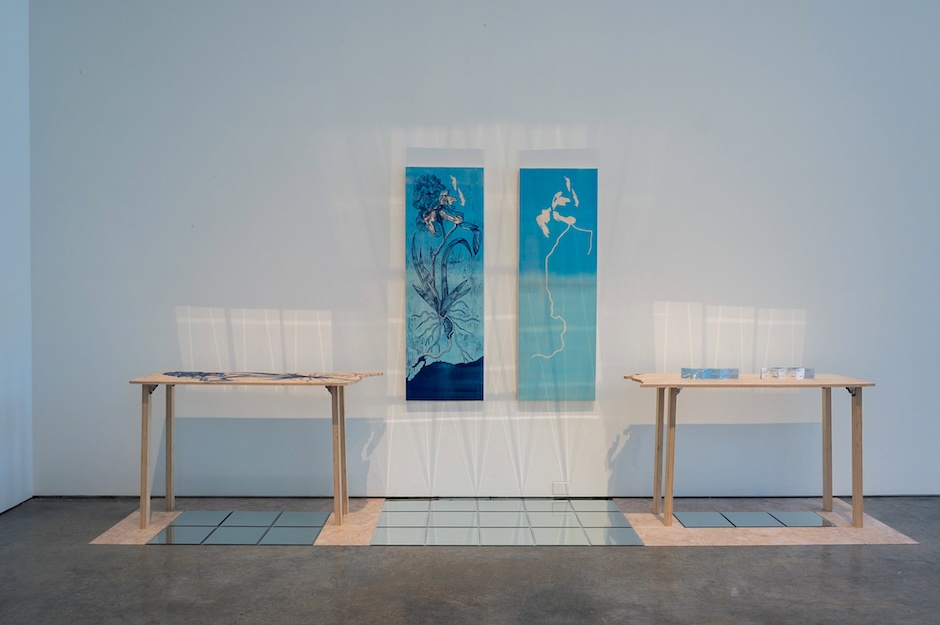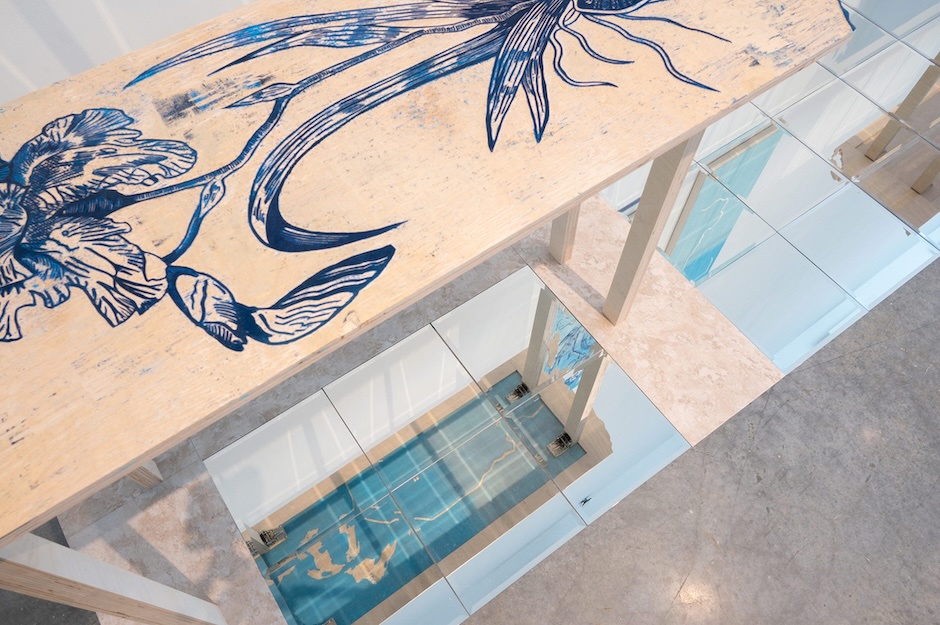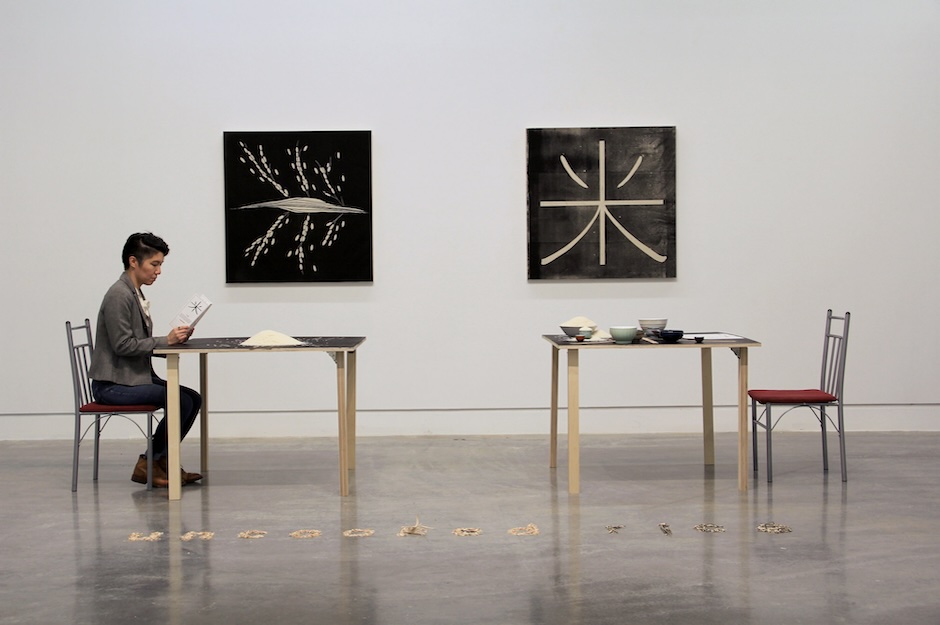Jenie Gao:
The Deer Garden
Opening Reception: Friday, Feb. 6 | 3 to 5 p.m.
Show Dates: Friday, Feb. 6 - Friday, Mar. 6
Location: Pratt Munson Gallery
Exhibition Statement
My mother lives in a rural area of Kansas, threatened in recent years by encroaching suburbanization. Since 2024, my spouse and I have taken turns visiting my mother to help with house repairs and assert our presence to overly inquisitive realtors and developers eager to displace older residents.
This exhibition centers on two installations from my ongoing series, The Negotiation Table. One installation focuses on a TV tray table, modeled after a similar one in my mother’s home where we share our meals and where she steps into one of her most profound roles as our family’s knowledge keeper. The other table is the iconic “lazy Susan,” a post-colonial innovation that has become emblematic of Chinese American and Asian diasporic restaurants. Together, the two tables offer different interpretations of my mother’s personal allegories from her childhood in Keelung, Taiwan.
In one such story, my mother explains how she sees herself, brave and capable of doing things alone. When she was a child in Taiwan, her family rented her a third-story bedroom separate from their first floor flat. To reach her room, every night, my mother ascended a staircase outside into the mountains under the watchful eyes of mountain lions. In another story, her name, which alludes to a celestial deer garden, describes her as someone who is meant to stay, long after others have gone away.
The works in this exhibition capture moments when my mother’s stories are suspended between a child’s imagination and an elder’s recollection, one in which there might truly have been lions in Taiwan’s mountains or perhaps an elusive clouded leopard before habitat loss caused them to die out and disappear. The tension of disappearance in these stories alludes to the repeated displacement my own family members, who have lost their homes to multiple occupying governments across generations, from the Chinese Nationalists’ persecution of Taiwanese people after World War II, to the U.S. government using eminent domain to seize my grandparents’ home for freeway construction.
The mountain lions of my mother’s childhood ended up being feral cats. Yet for a moment, as she offers her stories to my stewardship, the common becomes mythic. She looks outside her window in rural Kansas and watches a newborn deer stand up for the first time, and she believes it is a sign.
The Deer Garden is an investigation of material culture, an homage to the imagination of the oppressed, and a love letter to my mother and extended communities who, in the face of many uncertainties, maintain a sense of home.
Artist’s Bio
Jenie Gao (they/them) has run an anti-gentrification arts business since 2014, specializing in printmaking, public art, social practice, and community storytelling. They consult for cultural organizations and the public sector on equity and ethics.
Gao pulls from experiences as a second-generation Taiwanese-Chinese American and a descendant of working class immigrants. Prior to founding their business, Gao worked in the museum industry, public education, and lean manufacturing. Through their cross section of experiences, they have become attuned to issues of artists’ labour, cultural power, and institutional accountability. They run a paid apprenticeship program and have thus far mentored 25 emerging artists.
Gao has a BFA in printmaking/drawing from Washington University in St. Louis and an MFA from Emily Carr University of Art + Design. Their work is in 40 institutional collections including Bainbridge Island Museum of Art, Bowdoin College, Cornell University, Stanford University, and the Library of Congress. Their recent exhibits include Museum of Wisconsin Art, Trout Museum of Art, Burnaby Village Museum, Cedarburg Museum, and South Bend Museum of Art. Their work has been included in publications such as PBS, Shoutout LA, and Fête Chinoise. Their art residencies include Women’s Studio Workshop in Kingston, N.Y.; Art in the Park with Vancouver Board of Parks & Recreation: Decolonization, Art, & Culture; Ma’s House in the Shinnecock Reservation in Southampton, N.Y.; Iowa Lakeside Laboratory in Okoboji, Iowa; the Bubbler at Madison Public Library in Madison, Wis.; Artist Campaign School in Chicago, Ill.; Proyecto’ace in Buenos Aires, Argentina; and Museo de Arte Moderno in Chile. They are a TEDx Madison speaker and gave a talk entitled “The Power and Purpose of Creativity.”
Gao is the recently appointed executive director of Centre A: Vancouver International Centre for Contemporary Asian Art. They live on the unceded lands of the Musqueam, Squamish, and Tsleil-Waututh peoples (Vancouver, British Columbia) and also Teejop / land of the Ho-Chunk (Madison, Wis.).
Free and Open to the Public
The Pratt Munson Gallery is located at Munson Museum of Art at 310 Genesee St. Utica, N.Y.
Gallery Hours
Tuesday to Saturday: 10 a.m. to 5 p.m.
Sunday: noon to 5 p.m.


